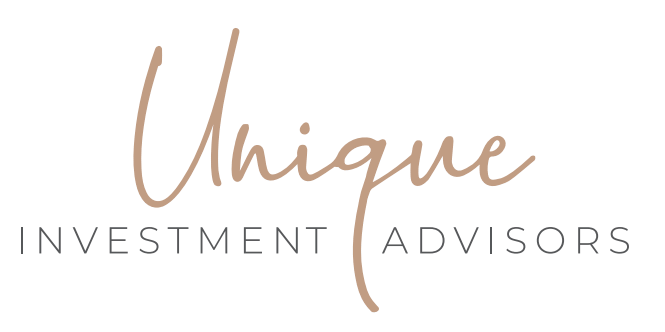The Pros and Cons of Indexed Universal Life (IUL) Insurance
When it comes to preparing a financial plan and securing your family’s future, insurance plays a vital role. One type of insurance that has increased in popularity in recent years is Indexed Universal Life (IUL) insurance. This unique policy combines elements of life insurance with investment opportunities, making it an intriguing option for many. However, like all financial products, IUL insurance comes with its own set of pros and cons. In the following, we will take a look into both the advantages and disadvantages of IUL insurance to help you make an informed decision.
Pros of Indexed Universal Life (IUL) Insurance:
1. Death Benefit: Similarly to other types of life insurance, IUL’s provide a benefit upon death to your designated beneficiaries. This primary feature ensures that the ones you love are taken care of in case of your untimely passing.
2. Tax-Free Death Benefit: The death benefit received by your beneficiaries is typically tax-free. This can provide a key benefit in terms of passing on a sizable sum without the burden of taxation.
3. Flexibility: IUL policies offer flexibility when it comes to your premium expenses. You have the ability to modify your policy payments within particular limitations, allowing you to adapt to any potential personal circumstances.
4. Cash Value Growth: IUL policies have a cash value component that can increase as the policy ages. This growth is tied to an underlying index, such as the S&P 500, which can potentially provide greater returns when compared to traditional whole life insurance products.
5. Downside Protection: While IUL policies offer the potential for cash value growth, they also come with a market downside protection feature. This means that your cash value won’t decrease due to poor stock market performance, making it a conservative zero floor value preservation option.
6. No Contribution Limits: You are not limited on Indexed Universal Life insurance contribution amounts, unlike some retirement plans, such as Individual Retirement Accounts (IRA’s) or 401(k) plans. This can be particularly advantageous if you have income that exceeds the qualified plan limits and want to invest more for your future.
7. Tax Benefits: IUL policies can offer tax advantages. The cash value growth is tax-deferred, and you can potentially access it through loans on a tax-free basis, providing a tax-efficient stream of income in retirement or earlier.
8. Liquidity: Index Universal Life (IUL) products allow you to access your cash value if necessary. While it’s paramount to comprehend the terms and conditions related to withdrawals, this liquidity can be favorable when the need arises, funding major expenses or living benefits.
9. No Market Timing Required: IUL policies don’t require you to actively manage your investments or gamble with trying to time the market. The performance is tied to the performance of your selected index, removing the need for constant market tracking and decision-making.
10. Legacy Strategy: An IUL can be an effective tool for legacy planning. You can leave a substantial tax-free inheritance to your heirs, ensuring your financial legacy continues.
Cons of Indexed Universal Life (IUL) Insurance:
1. Complexity: IUL policies can be complex, with multiple components and riders. Understanding all the terms and conditions can be challenging, making it essential to work with a knowledgeable insurance agent or financial advisor.
2. Costly Premiums: IUL policies tend to have higher premiums compared to term life insurance. While some of these premiums go toward the cash value, it can be costly, especially for those on a tight budget.
3. Market Risk: Although IUL policies offer downside protection, they are still tied to the performance of the underlying index. If the index performs poorly, your cash value growth may be limited, and you might not see the returns you expected.
4. Caps and Participation Rates: IUL policies often have cap limits on the maximum yields you can make from the underlying index. Additionally, participation percentages determine how much of the index’s gains you receive. These limitations can reduce the potential for high returns.
5. Surrender Charges: If you decide to cash out of your IUL policy early, you may face substantial premature surrender charges. These fees can eat into your valuation and reduce the overall growth on your investment.
6. Complex Investment Strategy: IUL policies require a deep understanding of the chosen index’s performance and the associated costs and benefits. This complexity may not be suitable for all investors.
7. No Guaranteed Returns: Unlike some traditional insurance products, IUL policies do not guarantee a minimum interest rate. If the market performs poorly, your cash value may not grow as expected.
8. Risk of Policy Lapse: If you’re unable to maintain premium payments, your indexed universal life policy could lapse, leading to a loss of coverage and potential tax consequences.
9. Long-Term Commitment: IUL policies are designed for the long term. If you’re looking for a short-term insurance solution, such as coverage for a specific period, there may be more suitable options.
10. Influence of Insurance Costs: A portion of your premium payments goes toward insurance costs, which can be substantial in the early years of the policy. This reduces the amount available for cash value growth.
Indexed Universal Life (IUL) insurance can be an effective approach when it comes to preparing a prosperous retirement, for those that comprehend its intricacies and have a prolonged planning horizon. The possibility for tax-deferred growth, tax-free loan distributions, and flexibility in premium payments make it an appealing choice for a lot of us. Notwithstanding, the inherent complexity, index performance limitations, and costs related to IUL products mean they may not be the right fit for all. It’s paramount to carefully consider your overall financial goals, tolerance for risk, and long/short-term plans when determining whether IUL insurance aligns with your individual needs. Consulting with an experienced financial advisor is always recommended in weighing the IUL pros and cons and making these important decisions when it come to your unique circumstances.
















